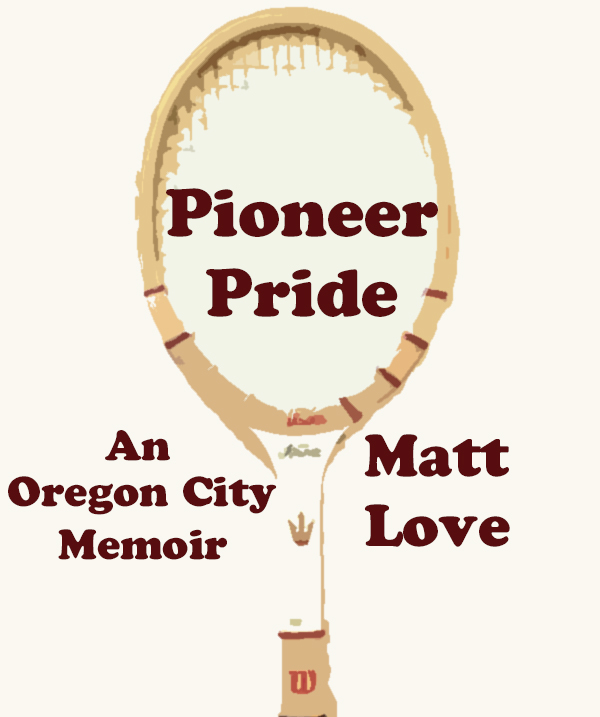Pioneer Pride: Part 11-Creative Writing
In my junior year, I landed in a creative writing course taught by Doug Winn. I suspect now it was his first teaching job, and he must have been in his mid twenties, reedy, with wavy hair and a bushy mustache.
It was a small class, maybe fifteen students. Winn required us to keep journals and often made observations in the margins. He also dictated a commentary on cassette tape about our writing during the semester. Some of Winn’s commentaries were made in public places such as a Laundromat, where bizarre characters would occasionally interact with him as he spoke into the recorder. We met Winn’s inaugural distribution of the tapes with utter astonishment—we didn’t know they were coming. At lunch I raced out to my car, plugged the tape into the cassette player, and listened to what my teacher had to say about my writing. I also heard him recommend authors.
Winn told me something about my writing’s wry voice and candid sexual content reminded him of Kurt Vonnegut and that maybe I should check this author out. I did, the very day Winn advised this. I rushed to the school library and found the novel Breakfast of Champions, thumbed its uncut pages, and noticed some peculiar drawings, including ones of the American flag and a female’s pubic hair.
I devoured Breakfast of Champions and the rest of Vonnegut’s novels. I’d never read anything like them: the voice, satire, time-bending, moral outrage, revisionist history, tone, and the bursts of ribald sexuality. Next Winn mentioned Norman Mailer. I’d never heard of him either. I took the bus to Portland to visit for the first time, Powell’s Bookstore, a holy and cavernous literary place Winn suggested I explore. There, I bought The Executioner’s Song, The Armies of the Night and The Fight.
The Armies of the Night, Mailer’s third-person account of his chaotic participation in a protest march against the Vietnam War, initiated me into a brave new ego-centric world of personal writing. In this book, I read sentences such as: “He had in fact learned to live in the sarcophagus of his image—at night, in his sleep, he might dart out, and paint improvements on the sarcophagus.” Immediately, I began emulating Mailer’s third-person point of view when writing about Matt Love, now the only subject I deemed worthy of my prose.
Winn launched a literary magazine that year and I got the impression then he might have paid for the press run himself. He kicked off this venture in grand style by convincing the police to cooperate with the magazine’s staff to stage a phony automobile accident in front of the school. Thus, we called the magazine Pile Up on 12th and Jackson and it contained five of my pieces, including a non-fiction story in the style of The Armies of the Night called “Love Among the Little Girls.” No wonder after reading this bombastic piece and another one titled “Girls, Soon to be Women, that I Have Known,” Winn commented on tape: “You have a little of this attitude that nobody is smart but me and that kind of attitude is not fun to be around. I don’t get a good response that a reader gets into that kind of attitude.”
In my senior year, I took an independent study in creative writing with Winn. Together, we developed the academic requirements for the course and they called for a journal, a book review a week alternating between fiction and non-fiction, a film review every other week, a piece of reportage or an essay a week, character sketches, poems, a film treatment, and a major short story at the end of the semester. Winn also expected me to teach his beginning creative writing class for one period. I doubled all the written requirements and taught for a week.
As graduation loomed, Winn invited a few students over to his ramshackle house for dinner and cooked us a spaghetti feast while incense burned and a jazz record played. That evening, he presented us homemade candles as special writers’ gifts. It felt like we were reenacting some Last Supper rite but absent the impending crucifixion. A few days later, Winn found me at school and handed over my graduation present in a neatly gift-wrapped package. I tore it open right there and beheld tattered copies of Henry Miller’s trilogy The Rosy Crucifixion: Sexus, Nexus and Plexus. Without any sort of preface to Miller, whom I had never heard of, Winn told me, “I think you’ll like this guy, now go out and become a writer.”

